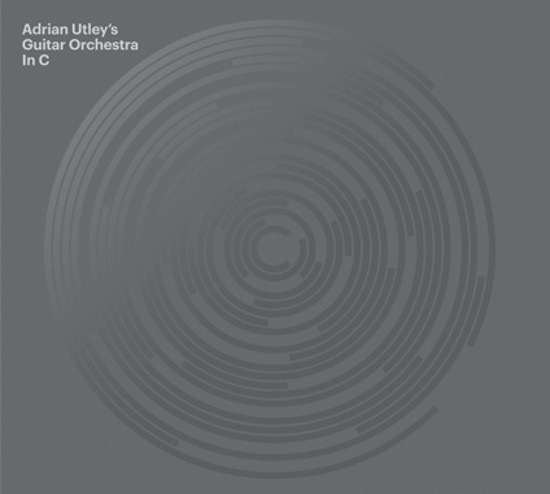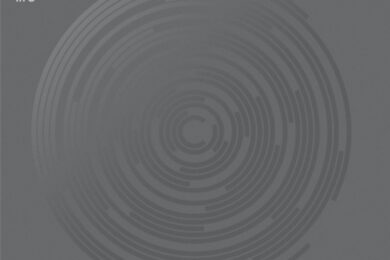Earlier this year, Portishead’s Adrian Utley got together his Guitar Orchestra, a group of 19 guitarists, four organists and one bass clarinettist, including his bandmate Jim Barr, PJ Harvey collaborator John Parish and Thought Forms, to perform a version of Terry Riley’s In C at St. George’s Hall in Bristol.
We’ve previously seen a short video excerpt from the hour-long performance (have a watch at the foot of the piece) of Riley’s piece, a landmark piece of minimalism from the Californian composer, originally written in 1964 and based around 53 repeated musical phrases which could be performed by any number of musicians (Riley recommended 35 himself). Now, ahead of the recording’s release later this month on download, double vinyl and CD (the latter come as deluxe editions featuring a film of the performance on DVD) via excellent Bristol label Invada, we’ve got an exclusive play of it in full, which we’re hugely excited to host as it won’t be available on any streaming services.
We also asked Utley to fill us in on the background of the recording, so have a listen to the piece below, scroll down for the interview and place your pre-orders here:
You’ve previously described the piece as: "A new free idea of organised group playing. The beginnings of what we know as minimalism." What gave you the initial idea to perform In C? What attracted you to going back to this particular moment in music?
Adrian Utley: I first played the piece with Will Gregory and Charles Hazlewood and friends and was guided through it by them. I began to understand its beauty and complexities and Terry Riley’s amazing concept. I thought I would like to do it again but with only electric guitars. I felt it would have a hypnotic feeling if we slowed it down and limited the palette.
How did you set about pulling it all together and getting everyone involved?
AU: Getting it together was actually quite simple as I know a lot of guitarists and they were all thankfully into the idea. We had previously played with 60-ish guitars together in a piece that I had written.
What effect do you think shifting the piece almost entirely to being played on guitars had overall?
AU: Playing with only guitars glues the sound together and there are less different sounding timbres dominating or standing out. Having old Farfisa and Hammond organs reminded me of early Steve Reich and Philip Glass… a sort of sonic nod to the minimalist movement as I hear it.
The piece is hung around this aleatoric principle of leaving the number of performers and how they perform up to each individual performance. How far did you go in directing people and shaping the piece or did you let each musician have their own way?
AU: I really only discussed what I had read and learned about the music and the concept. Charles Hazlewood was very helpful with the concept too. We were and remain careful not to overplay in rehearsal… just run through all the phrases, correct the balance and tone of the instruments, discuss the concept as a group and leave the performance until we play it to an audience.
Have you got any future plans for another Guitar Orchestra piece?
AU: Yes, I have many plans for the orchestra of guitars. Hopefully I will have time to write some pieces and also explore already written things. The Arvo Pärt Berliner Messe we played last year with choir and string quintet was the start of some really interesting future projects.



